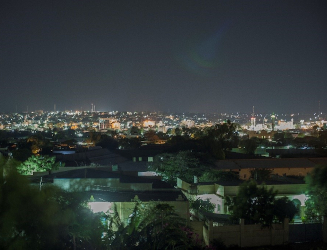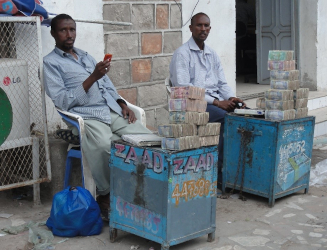The Republic of Somaliland has, since 1991, been an independent and democratic state fulfilling the requirements of statehood under international law. These requirements are a defined territory (former British Somaliland Protectorate), a national population and state authority. It is not currently recognised internationally as such. The region was formally known as the British Somaliland Protectorate and encompassed the 850km coastline on the Gulf of Aden between the former French Colony of Djibouti and the former Italian Colony of Somalia. The name of the country is derived from the Somali people who inhabit the region.
British Somaliland became independent on June 26th, 1960, some days before Italian Somalia and was recognised by more than 30 states before joining the former Italian Somalia to become the Somali Republic. Ethnic Somalis inhabit Somaliland, Somalia and Djibouti and also the Ogaden of Ethiopia and the north east of Kenya. Somalis longed for a state that brings together all areas in which Somalis lived, to be known as Greater Somalia, but this dream began to die soon after the union because of major differences in languages, culture and political injustice against the people of Somaliland. The Greater Somalia totally died after the loss of the Ogaden War in 1978. Decentralising tendencies through political, economic and ethnic reasons became stronger. This resulted in a war in 1981 between Somaliland and the central government in Mogadishu. Hargeysa and Burao became razed to the ground, tens of thousands died and over a million refugees fled the country, mainly to refugee camps in Ethiopia.
After the fall of Siad Barre, the dictator of Somalia, in 1991, Somaliland separated from Somalia and began to rebuild itself from the ruins of war. Social and political agreements have been made over the years by the clans of Somaliland which have allowed democracy to flourish. In 2001, a new constitution was accepted through a referendum and, following the British model, a parliament with two chambers established. In one chamber sit the representatives of the elders, and in the other, the elected representatives of the state. In order to avoid people electing only representatives of their own clan, the number of the parties is limited to three. After the acceptance of the constitution, there have been several municipal, three parliamentary and four presidential elections. All were held peacefully and witnessed by International Observers.
Somaliland uses three tiers of law: English law for contracts and courts, Sharia for familial law and traditional law for disputes between clans.
Since the early 1990s, Somaliland has been peaceful and stable and thousands of former refugees have returned from the diaspora with their expertise and savings to rebuild their country. Additionally, the diaspora financially supports the country with significant investments in the private sphere and in infrastructure.
Nevertheless, poverty in Somaliland remains high due to a lack of political recognition and qualified professionals. The goal of HMS is to support the development of professional personnel, especially in the fields of health and education.
Data

State Capital: Hargeysa
President: Dr. Abdirahman Mohamed Abdullahi
Population: 2.5-3.5 Mio.
Area: 137'600 km2
Website of the Government: www.somalilandgov.com
Independence on June 26th 1960
Further information
- Somaliland – vergessen, weil friedlich und demokratisch (2016, pdf)
- Map Somaliland (2004, pdf)
- Map of Freedom (2014, pdf)
- Vorwort im Jahresbericht 2013 von Hadia Medical Swiss (pdf)


